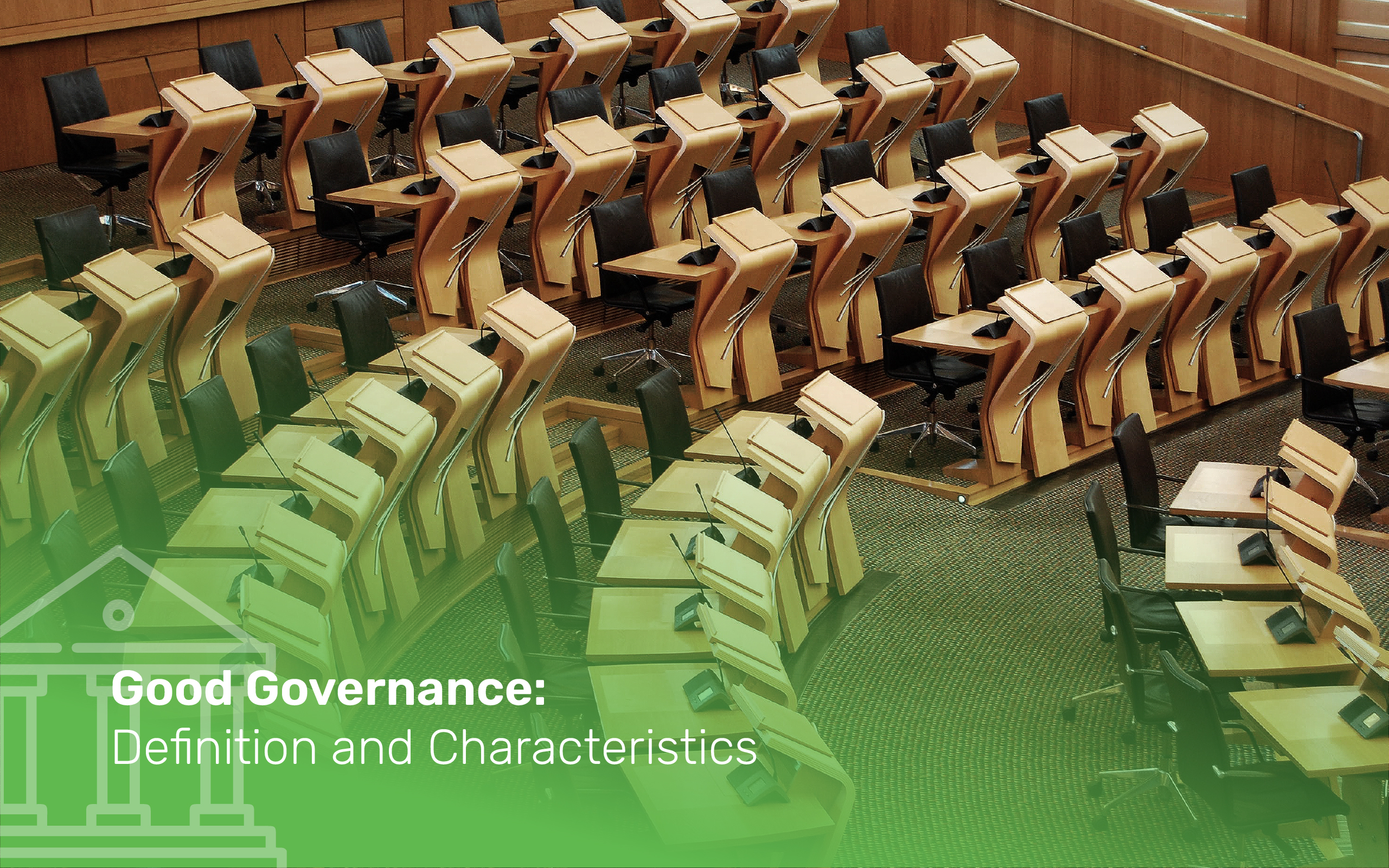Governance is a concept that has been around for years and is commonly used by many people. There is almost no consensus on the official definition of governance because its use often depends on the intended purpose, the people involved, and the socio-political environment of the term.
According to the United Nations (UN), governance refers to the activities of all political and administrative authorities to govern their country. Meanwhile, as stated by the International Monetary Fund (IMF), governance is a concept in which a country is managed, including economic, policy, and legal aspects.
Thus, in general, governance has the meaning: the decision-making process and the process of determining which policies will be implemented and not implemented.
Defining good governance
In the 1990s, the World Bank became the first international institution to adopt the concept of good governance into lending arrangements for developing countries and introduce the idea to the general public. In its 1992 report entitled “Governance and Development”, the notion of good governance was written as the way in which power is used to regulate the economic and social resources of a country for development.
Now, the term good governance has often been used by national and international organisations. Good governance aims to minimise corruption, take into account the opinions of minorities, listen to the voices of the oppressed people in the decision-making process, and respond actively to the needs of the community now and in the future.
Eight principles of good governance
Citing from the United Nations Economic and Social Commission for Asia and the Pacific (UNESCAP), the concept of good governance has eight principles.
1. Participation
Participation in the concept of good governance here is an opportunity for everyone to voice their opinions through institutions or representations. In addition, everyone, without exception, has the right to freedom of association and expression.
2. Rule of law
To implement good governance, the legal framework in the country must be enforced impartially, especially concerning human rights law.
3. Transparency
Transparency means that every policy taken and implemented by the government must be carried out under existing regulations. In addition, there must be a guarantee that any information related to the policy can be accessed by everyone, especially those who are directly affected by the policy.
4. Responsiveness
Good governance needs institutions and processes to attempt to serve all stakeholders within a reasonable time.
5. Consensus oriented
This fifth principle is related to the decision-making process. When the decision-making process cannot accommodate everyone’s wishes, then at a minimum, the decision must be a decision that can be accepted by everyone and does not harm anyone.
6. Equity and inclusiveness
Good governance ensures justice for the community. Everyone has the same opportunity to maintain and improve their welfare.
7. Effectiveness and efficiency
Every decision-making process and its institutions must be able to produce decisions that meet every community need. Community resources must also be utilised optimally by the government.
8. Accountability
All institutions involved in good governance have full responsibility to the public for the sake of improving the quality of society.
Now that we are all presented with an overall understanding of good governance and its principles, let’s talk about how it’s harnessed at the local level and how the role of local governments is especially crucial for a city’s development.
The United Cities Local Governments (UCLG) has emphasised in the Global Agenda of Local Regional Governments that effective local governance can be a key pathway to solving the various challenges in development at the global level. The biggest example is, of course, towards the achievement of the 2030 Agenda or what we know as the Sustainable Development Goals, as well as addressing crucial issues such as climate change. Therefore, being the closest to its communities, local and regional governments have the advantage of putting people at the centre of every decision-making process.
Local and regional governments demonstrate on a daily basis the potential that action based on proximity has to contribute to solving major global challenges. This is UCLG ASPAC believes that the development and improvement of people’s living conditions should be undertaken primarily at the local level. We strive to achieve decentralisation as a way to democratise public governance at all levels.
United Cities and Local Governments Asia Pacific is the voice of Local and Regional Governments in the region. We aim to ensure that our values are shared among our members. This strength is the driver of our aim to secure a more permanent seat at the global table, to ensure the local perspectives and points of view of local and regional governments play a part in the global decision-making processes and in the implementation on the ground of the global agendas.
Collaboration
It can be concluded that good governance is an ideal concept to achieve its goals. Yet, of course, implementing good governance is not as easy as it appears on paper. There are only a few countries that have proven successful in implementing this concept in their governance. Swift and responsible action from various parties will undoubtedly be very helpful in implementing good governance. Meanwhile, at the local level, UCLG ASPAC believes that vertical integration of national policies with local level implementation is key to enable greater impact in building a sustainable and resilient city. Again, this is important as we are aware of the challenges that cities and local governments face in terms of technical, institutional, and financial capacity, which can be tackled when they are given a good enabling environment.











